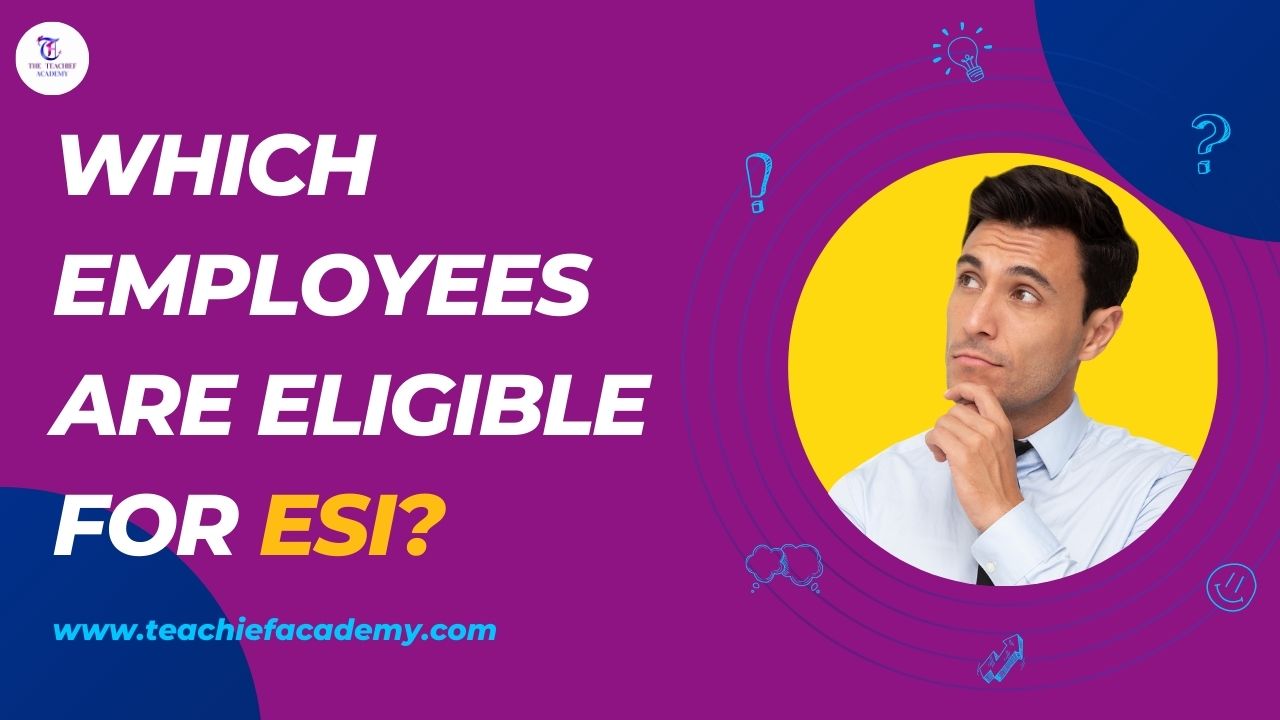Which employees are eligible for ESI?
The ESI act came into existence in 1948, when India saw a revolution in the name of industrialization. With the expansion of industries, employers were hiring more and more individuals to pace the process of manufacturing. Industrialization also came with many health hazards to the people who were working in the industries. For the safety of these workers, the country’s legislation came up with the scheme of ESI.
ESI or the Employees’ State Insurance is a social and economic protection and comprehensive medical insurance scheme for workers in Indian companies. The Employees’ State Insurance Corporation administers this scheme. It is an independent body that functions under the Ministry of Labour and Employment in the Government Of India. This scheme provides diverse advantages to the employees and their family members like financial compensation for ailments, compensation for handicapped individuals, and the mortality of the individuals. It also provides healthcare coverage for the rehabilitation of diseases and wounds.

Some benefits of the ESI schemes are:
Employee Medical Insurance: ESI allows the coverage of the employee’s medical expenses in an inexpensive, decent healthcare facility. And the employee gets the benefit of this feature of ESI from the first day of their employment.
Maternity and Motherhood: When a female employee gets pregnant, they can avail 100% of their salary for 26 weeks which could also be increased to 30 weeks on medical advice. If a woman goes through a miscarriage, the same availability is for 6 weeks; in the case of adoption, it can go to 12 weeks.
Disability: When an employee meets with an accident and is temporarily disabled, they are allowed a benefit of 90% of their wage till recovery. In case of permanent damage, they can use the same facility for their entire life.
Sickness: When an employee falls sick, they can avail 70% of their wage under this scheme for a maximum of 91 days.
Dependent: When an employee suffers from an injury at the workplace, the scheme avails the worker’s dependents to receive financial aid.
Funeral Cost: If, by any chance, the employee dies, this scheme offers an amount of Rs. 15000 to the next of kin or the person who performs the last rites of the employee.
According to the ESI website, people who earn more than Rs. 21,000 per month are not considered under this scheme. For disabled and handicapped employees, the maximum wage secured per month through ESI is not more than Rs.25000. In most of the states and Union territories, to avail ESI scheme, a firm should have 10 or more employees, but in Maharashtra and Chandigarh, ESI is availed only when the number of employees exceeds more than 20.
For the proper functioning of the scheme, both the employer and the employee contribute a certain percentage of the employee’s salary.
For an employee to avail of the facilities of this scheme, it is the responsibility of the employer to register his employees to the scheme within 15 days of their joining. Today, more than 3 crore individuals have benefitted from this Act, and more employees are registered.






